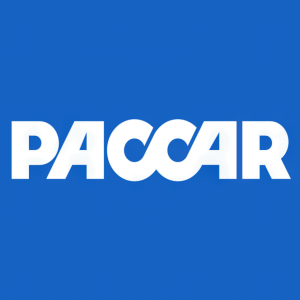PACCAR Highlights Heavy-Duty Innovation at CES 2024 with the Truck Industry’s Most Advanced Technologies
“PACCAR is developing the transportation industry’s most important technologies. These include industry-leading battery electric and hydrogen fuel cell electric vehicles that help customers operate with the lowest emissions and outstanding efficiency,” said John Rich, PACCAR senior vice president and chief technology officer. “We are investing in multiple zero emissions technologies in order to have the right trucks and transportation solutions for our customers.”
PACCAR will display several advanced products and technologies at CES 2024 including:
- Kenworth’s T680 Hydrogen Fuel Cell Electric Vehicle (FCEV)
- Peterbilt’s SuperTruck II
- DAF’s XD Battery Electric Vehicle
- PACCAR Parts’ Electric Vehicle Charging Solutions
PACCAR is leveraging next-generation hydrogen fuel cell technology developed in partnership with Toyota Motor North America, Inc. The companies have expanded their partnership to develop and commercialize the technology in Kenworth T680 and Peterbilt Model 579 Class 8 trucks. The powertrain was recently awarded the Zero Emission Powertrain certification by the California Air Resources Board. The Kenworth T680 FCEV on display at CES, and the hydrogen fuel cell powered Peterbilt Model 579, offer uncompromised zero emissions heavy-duty operations with up to a 450-mile range, an 82,000 lbs. max gross combination weight rating, and refueling times that are consistent with traditional diesel trucks. To date, PACCAR has received more than 150 paid deposits for Kenworth and Peterbilt FCEVs with customer deliveries commencing in 2025.
The Peterbilt SuperTruck II is a testbed for future product technologies. It was developed as part of a
The DAF XD Battery Electric truck is designed for urban and suburban transport, delivering up to 310 miles on a single charge. With 325 kW fast charging, the truck can charge from 0
PACCAR Parts will showcase DC fast chargers available for Kenworth, Peterbilt and DAF electric vehicles. PACCAR Parts’ electric vehicle charger portfolio strategically covers PACCAR’s full range of electric vehicles.
“PACCAR brings an industry-leading portfolio of zero emissions vehicles and technologies, and over a century of heavy-duty innovation, to support customers’ operational and environmental goals,” added Rich.
PACCAR is a global technology leader in the design, manufacture and customer support of high-quality light-, medium- and heavy-duty trucks under the Kenworth, Peterbilt and DAF nameplates. PACCAR also designs and manufactures advanced powertrains, provides financial services and information technology, and distributes truck parts related to its principal business.
To learn more about PACCAR and its vehicle brands, please visit https://www.paccar.com/.
View source version on businesswire.com: https://www.businesswire.com/news/home/20240108257806/en/
Ken Hastings
ken.hastings@paccar.com
(425) 468-7530
Source: PACCAR







